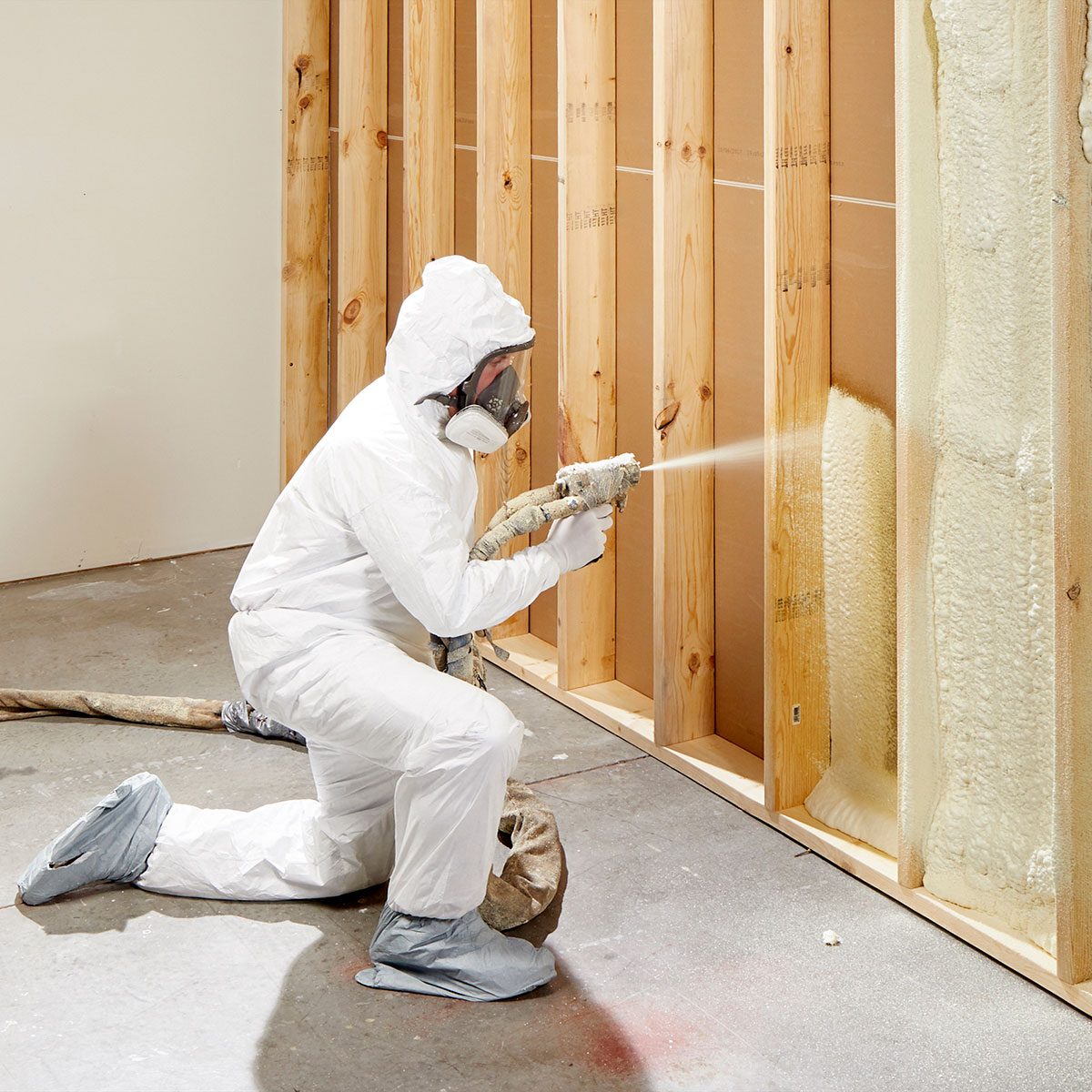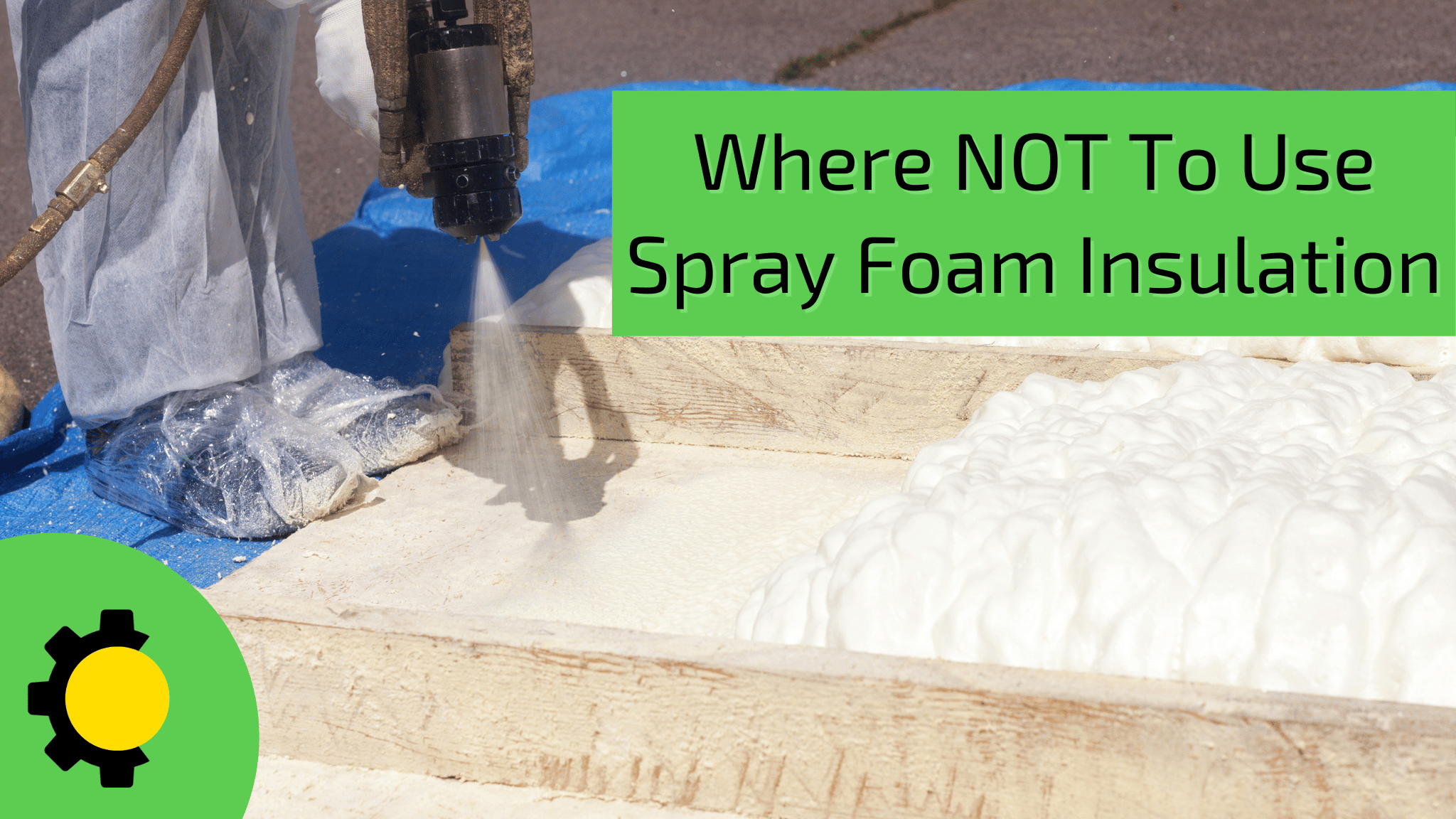Spray Foam: The Ultimate Service for Air Sealing and Insulation
Spray foam insulation has actually become a leading solution for effective air sealing and thermal insulation, offering an unique mix of homes that establish it aside from standard approaches. Its capacity to expand and fill up spaces makes it particularly reliable in stopping air leak, which can significantly influence energy performance. Understanding the full scope of its benefits, installment procedures, and comparisons with various other insulation kinds is critical for making informed choices. As we explore these elements, the effects for both new building and constructions and retrofits end up being increasingly significant. What elements should influence your choice?
What Is Spray Foam?
Spray foam is a versatile insulation material that integrates the concepts of air sealing and thermal resistance to improve energy effectiveness in structures. Composed mainly of polyurethane or various other comparable substances, spray foam is used as a liquid that expands upon call with surfaces, producing a solid, constant layer of insulation. This special residential property allows it to fill voids, fractures, and gaps that traditional insulation products might overlook, offering a premium air seal.
There are 2 primary kinds of spray foam: open-cell and closed-cell. Open-cell spray foam is lighter and much more flexible, providing outstanding audio absorption and a reduced R-value per inch - Spray Foam. In contrast, closed-cell spray foam is denser, providing a greater R-value, dampness resistance, and included architectural honesty to constructing parts
The application process commonly involves specific devices, guaranteeing a seamless application that sticks to various substratums, including metal, concrete, and timber. This versatility makes spray foam appropriate for both brand-new buildings and retrofitting existing frameworks. Its capacity to produce a closed obstacle considerably adds to minimizing power consumption and improving indoor air high quality, therefore making it a preferred choice among building contractors and property owners alike.
Benefits of Spray Foam Insulation
Among the most significant advantages of spray foam insulation is its exceptional capability to develop a continual air obstacle, which successfully decreases power loss. Unlike traditional insulation materials, spray foam broadens to load voids and fractures, ensuring that air leak is significantly minimized. This characteristic not only boosts energy effectiveness yet additionally results in decrease energy expenses with time.
Furthermore, spray foam insulation supplies exceptional thermal resistance, contributing to a more secure indoor setting. Its high R-value per inch permits efficient insulation in confined spaces, making it excellent for attic rooms, walls, and crawl rooms. Moreover, the moisture-resistant properties of spray foam aid prevent mold and mildew and mildew development, promoting much healthier living problems.
One more crucial advantage of spray foam insulation is its sound-dampening high qualities (Spray Foam). It effectively minimizes noise transmission between areas, producing a quieter and more comfy home environment. The toughness of spray foam likewise stands out, as it does not droop or settle gradually, keeping its performance throughout its life-span
How Spray Foam Works
Recognizing how spray foam insulation works is crucial for appreciating its performance in air sealing and thermal resistance. Spray foam insulation contains two key components: isocyanate and polyol resin. When these parts are mixed, they undergo a chain reaction that creates the product to expand quickly, developing a thick foam that fills spaces, fractures, and dental caries.
As the foam broadens, it complies with surface areas, forming a closed seal that considerably lowers air seepage. This characteristic makes spray foam insulation extremely reliable at avoiding drafts and wetness penetration, which can cause power loss and damages gradually. In addition, the closed-cell variation of spray foam supplies superior thermal resistance due view it now to its rigid structure, efficiently reducing warm transfer.
The one-of-a-kind homes of spray foam enable it to adapt irregular surfaces, ensuring comprehensive coverage and a smooth obstacle. Consequently, spray foam insulation not only enhances power effectiveness however also adds to enhanced indoor air quality by reducing the buildup of irritants and contaminants. Inevitably, comprehending the mechanics behind spray foam highlights its role as a superior option for insulation and air sealing in both residential and business applications.
Installation Refine Summary

Before setup, the room must be effectively cleansed and prepped, go to these guys ensuring that surfaces are devoid of dirt, debris, and wetness. This step is important due to the fact that contaminants can jeopardize bond and general efficiency. As soon as the location is prepared, the application entails blending the 2 parts of the spray foam, which increases upon get in touch with and fills up voids properly.
Educated experts must carry out the setup, utilizing specialized devices to guarantee uniform coverage and optimal thickness. Safety and security preventative measures, consisting of putting on protective equipment and making sure correct air flow, are imperative during this process. After application, the foam normally remedies rapidly, forming a strong barrier that enhances power effectiveness.
Contrasting Spray Foam to Typical Insulation
When examining insulation choices, spray foam insulation stands out in contrast to standard materials such as fiberglass and cellulose. Among the main advantages of spray foam is its remarkable air sealing capacities. Unlike fiberglass and cellulose, which can enable air infiltration, spray foam increases upon application, filling crevices and voids to produce an airtight seal. This causes enhanced power efficiency, as much less heated or cooled air runs away the home, causing lower utility costs.
Additionally, spray foam supplies a higher R-value per inch than standard insulation kinds, providing even more reliable thermal resistance in a thinner profile. This particular is especially beneficial precede with minimal cavity depth. In addition, spray foam is resistant to moisture and mold development, which can be a significant interest in cellulose and fiberglass, specifically in humid atmospheres.
Nevertheless, spray foam insulation commonly lugs a higher upfront price than its traditional counterparts. House owners have to consider this initial investment against long-term energy financial savings and efficiency advantages. Inevitably, while both insulation kinds offer their purpose, spray foam becomes an advanced solution for modern-day insulation demands, specifically in regards to air sealing and thermal efficiency.

Final Thought
In summary, spray foam insulation represents a highly effective remedy for attaining ideal air sealing and thermal resistance. Its distinct homes, including moisture resistance and audio dampening, make it ideal for different applications in both new building and constructions and retrofitting tasks (Spray Foam). Although the first prices may be higher contrasted to standard insulation materials, the lasting advantages, such as significant power cost savings and enhanced indoor air quality, warrant the financial investment and underscore its worth in contemporary structure methods.
Spray foam insulation has actually arised as a leading solution for efficient air securing and thermal insulation, providing an unique mix of residential or commercial properties that establish it apart from conventional approaches.Spray foam is a flexible insulation product that combines the concepts of air securing and thermal resistance to enhance power efficiency in buildings.When reviewing insulation options, spray foam insulation stands out in contrast to typical materials such as fiberglass and cellulose. Eventually, while both insulation kinds serve their function, spray foam arises as an extra advanced service for modern-day insulation needs, especially in terms of air securing and thermal performance.
In summary, spray foam insulation represents an extremely reliable solution for achieving ideal air securing and thermal resistance.
Comments on “Common Myths About Spray Foam: Debunking the Misconceptions”